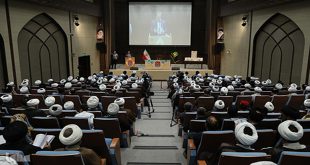This study examines the intra-Salafī disputes in the 1990s over the legitimacy of present-day rulers in the Muslim world and their status as Muslims.
While these issues are theological in their essence, they are intertwined with the political milieu of the Middle East. Fundamentally, these intra-Salafī disputes pivot around the central question of the impact of implementing manmade law systems (instead of sharīʿah) on the legitimacy of the ruler. This study tackles this question and related issues that form the themes addressed in this study. It begins by providing a minimal definition of Salafism which identifies its main characteristics that distinguishes its adherents from other Muslim denominations. Chapter two and three discuss the disputes over whether present-day rulers meet the required qualification to qualify as legitimate rulers in Islam and hence what position Muslims should take towards them. Chapter four digs deeper into the theological aspect of these debates in order to ascertain the different views on what acts can and cannot strip a Muslim from his/her status as a Muslim. It begins by highlighting the importance laid on creed in Salafism and providing the general principles on belief and unbelief upon which all Salafī proponents agree. After that, it examines the disagreements amongst contemporary Salafīs over which criteria should be considered to determine that an act of omission or commission is sinful enough to cause unbelief. Chapter five investigates the accusations levelled against the prominent Salafī scholar al-Albānī in regards to deviancy from the teachings of Salafism on belief and unbelief as an example of the importance of this debate. This study demonstrates how intra-Salafī disputes evolved from a mere disagreement over the legitimacy of political opposition to the state to become an intense complex quarrel on the nature of the Islamic faith. It argues that political affiliations alone fail to explain intra-Salafī disagreements over politics and violence and only through accurate analyses of the underpinning doctrinal differences one can understand their divergent reactions to contemporary political issues. This research aims to contribute to the study of the Islamic governance genre as well as to the studies on Salafism which despite its rapid spread worldwide, remains a scarcely studied subject.
Bibilografic Information
Title: Debating al-Ḥākimiyyah and Takfīr in Salafism: The Genesis of Intra-Salafī Schism in the 1990s
Author: Mimouni, Abdelghani
Advisor: Robert Gleave
Qualification Name: Thesis (Ph.D.)
Date issued: 2016-05
Publisher: University of Exeter
 Ijtihad Network Being Wise and Faithful Muslim in the Contemporary World
Ijtihad Network Being Wise and Faithful Muslim in the Contemporary World
